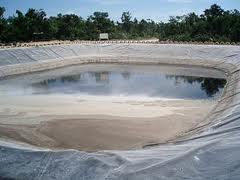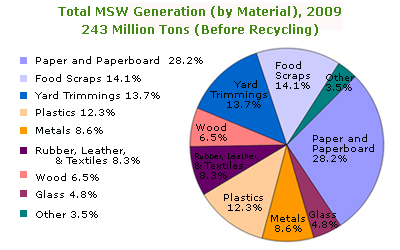Recently I took a tour of our local landfill, expecting to find a complete disaster of a place like I saw while I lived in Cali, Colombia. Guayaquil’s landfill, however, is better organized and run than most any other local or national government agency! I couldn’t believe it. I am not going to get into specifics about the landfill in this post, but suffice it to say that I was very surprised at what I saw. Everything in the following video is true!
I learned a lot through the visit. For example, here in Guayaquil recycling is strictly prohibited because there are no recycling trucks, so it makes garbage trucks fall behind their schedules and because informal recyclers make a mess of curbside garbage after rummaging through it all and leaving what they can’t use all over the sidewalk. So, everything goes to a single landfill.
The landfill struggles with two big problems on site. First, is the huge quantities of methane that escapes from the garbage. To deal with this properly, tubes are installed to channel the methane out into the atmosphere because otherwise it accumulates underground and becomes quite explosive.
Methane is a greenhouse gas that is 21 times more potent than carbon dioxide. Significant methane production typically begins after approximately one year of disposal and continues from 10 to 60 years.1 Landfills are the largest source of U.S. methane emissions and emitted ... 37% of total U.S. emissions in 1997 (EPA, 1999).
The other major problem is leachate. This is a liquid produced when rain falls on and moves through garbage and drains off extremely contaminated. It is also produced without rain when organic waste decomposes anaerobically, as you can see whenever you take the garbage out and there is some liquid left at the bottom of your garbage can.

Through a series of pipes and drainage areas made with thick plastic liner, the leachate is channeled to an evaporation pond like the one above where it is supposed to evaporate. Much of the leachate is pumped back up and sprayed over the garbage so that it will evaporate in that process. There is no other way to get rid of it. If it is not collected in this way, it will find its way down into the groundwater and contaminate it at lightening speed. This stuff is so toxic that the guide told me of the hives that broke out all over one worker that accidentally touched it once. This makes me wonder about the composition of the rain that comes out of the clouds formed though its evaporation.
What stayed with me the most is that both of these problems originate either exclusively or mostly from food scraps. Diverting food scraps from landfills would resolve the methane issue completely and reduce leachate production significantly. There are many, many other benefits from doing this that I will look at in depth in later posts.
In “developed” or industrialized countries, food scraps make up approximately 30% of all municipal waste by weight, although in the United States it is much lower at 14.1% as shown in the following figure.

However, in “developing” countries the percentage of landfill made up of food scraps is much higher, making up approximately 60% of all municipal waste. This is true for our local landfill where 56% of the landfill is organic matter.
This makes recycling food scraps a much more significant issue for developing countries like Ecuador. This is one of the reasons that I will now embark on a series of posts about how I have taken steps to contribute to resolving this problem in Guayaquil.
1. http://www.iowadnr.gov/portals/idnr/uploads/waste/ecosec7.pdf
The landfill struggles with two big problems on site. First, is the huge quantities of methane that escapes from the garbage. To deal with this properly, tubes are installed to channel the methane out into the atmosphere because otherwise it accumulates underground and becomes quite explosive.
Methane is a greenhouse gas that is 21 times more potent than carbon dioxide. Significant methane production typically begins after approximately one year of disposal and continues from 10 to 60 years.1 Landfills are the largest source of U.S. methane emissions and emitted ... 37% of total U.S. emissions in 1997 (EPA, 1999).
The other major problem is leachate. This is a liquid produced when rain falls on and moves through garbage and drains off extremely contaminated. It is also produced without rain when organic waste decomposes anaerobically, as you can see whenever you take the garbage out and there is some liquid left at the bottom of your garbage can.
Through a series of pipes and drainage areas made with thick plastic liner, the leachate is channeled to an evaporation pond like the one above where it is supposed to evaporate. Much of the leachate is pumped back up and sprayed over the garbage so that it will evaporate in that process. There is no other way to get rid of it. If it is not collected in this way, it will find its way down into the groundwater and contaminate it at lightening speed. This stuff is so toxic that the guide told me of the hives that broke out all over one worker that accidentally touched it once. This makes me wonder about the composition of the rain that comes out of the clouds formed though its evaporation.
What stayed with me the most is that both of these problems originate either exclusively or mostly from food scraps. Diverting food scraps from landfills would resolve the methane issue completely and reduce leachate production significantly. There are many, many other benefits from doing this that I will look at in depth in later posts.
In “developed” or industrialized countries, food scraps make up approximately 30% of all municipal waste by weight, although in the United States it is much lower at 14.1% as shown in the following figure.
However, in “developing” countries the percentage of landfill made up of food scraps is much higher, making up approximately 60% of all municipal waste. This is true for our local landfill where 56% of the landfill is organic matter.
This makes recycling food scraps a much more significant issue for developing countries like Ecuador. This is one of the reasons that I will now embark on a series of posts about how I have taken steps to contribute to resolving this problem in Guayaquil.
1. http://www.iowadnr.gov/portals/idnr/uploads/waste/ecosec7.pdf
2 comments:
Very interesting post, Justin! I was actually surprised that the percentage of food scraps is so much lower in the US than in developing countries. We seem so much more wasteful with our food. But, maybe it's that we throw so much other stuff away . . .
Great stuff Justin! I want to ask you some questions about what you've been seeing in Guayaquil City's Waste Management. Having lived there for a long time long ago, I am doing some research for a class on it now. Please give me a buzz: My name is Willy Saar. Pleased to meet you. will@thestateworkers.com
PS since you moderate comments, please extirpate the email address from the comment before publishing if you do. It will make the bots have a harder time finding me (infernal spam machines!)
Thanks!
Post a Comment